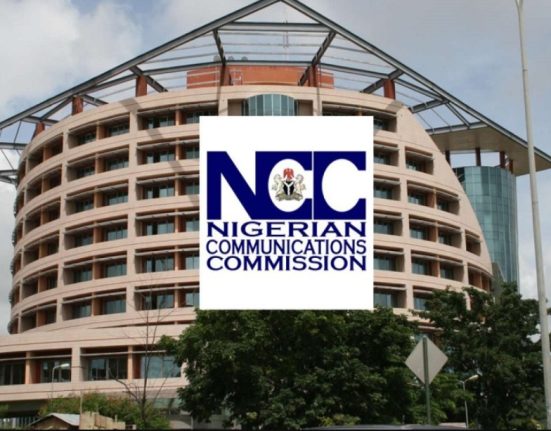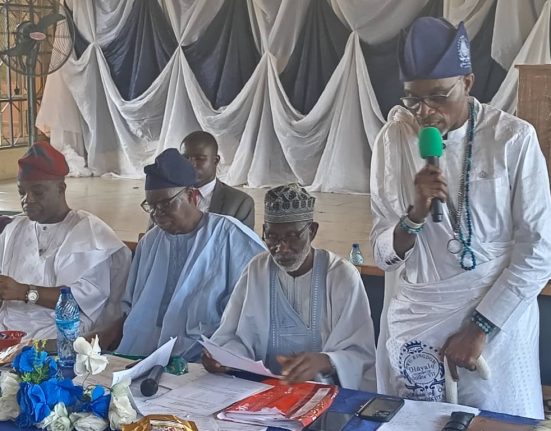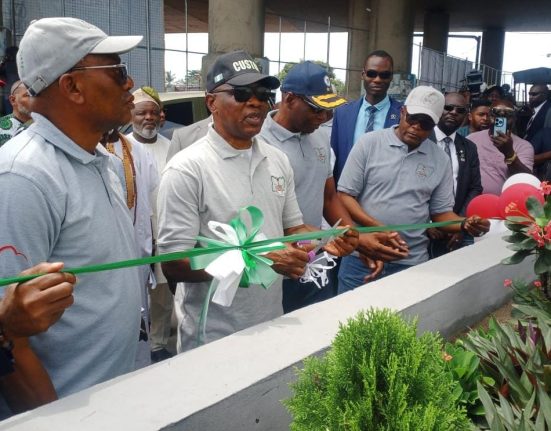
By Our Correspondent
Lagos, May 20, ’25 (TNZ) The Nigeria Customs Service (NCS) is committed to facilitating the importation of renewable energy technologies into the country, according to the Comptroller-General of Customs (CGC), Bashir Adeniyi.
TheNewsZenith reports that Adeniyi announced this during the NCS Trade Facilitation Consultative Forum, in Lagos, on Monday.
The theme of the forum is “Trade Facilitation Measures for Renewable Energy and Energy-Efficient Technologies”.
Deputy Comptroller-General of Customs on Tariff and Trade Facilitation, Caroline Niagwan, represented Adeniyi.
He said the commitment would involve enforcing fiscal measures to promote a shift from fossil fuel dependency.
The CG said this was to achieve net-zero emissions by 2060.
“The Customs efforts on renewable energy primarily involve regulating the import of essential equipment like solar panels.
“It is also to ensure a duty-free and VAT-free classification to support the development of the sector.
“The NCS’s renewable energy operations include classifying solar panels under specific Harmonised System (HS) codes.
“Customs will also ensure consistent treatment of imports, and streamlining procedures for compliant businesses,” TheNewsZenith quotes him as saying.
The CGC explained how the Green Customs Initiative responds to the growing number of legally binding Multilateral Environmental Agreements (MEAs).
GCI also recognises the critical role customs play in enforcing them.
“The Federal Government, under the leadership of President Bola Tinubu, continues to champion policies that foster investment, ensure sustainability, and promote responsible industrial practices.
“This is as outlined in Nigeria’s Energy Transition Plan (ETP),” Adeniyi said.
Welcoming participants, the Assistant Comptroller-General of Customs in Charge of Zone ‘A’, Charles Orbih, recalled that NCS inaugurated its advance ruling programme on May 2, 2024.
Read Related News:
- NCS fosters strategic partnerships for seamless trade operations
- Apapa NCS collects N1.8trn revenue in 10 months
- NCS TinCan port transfer N8bn illicit drugs to NDLEA
- Customs PTML command generates N90.2bn in Q1 2025
- NCS intercepts 12 containers of Tramadol, machetes at Apapa port
“The focus on renewable energy and energy-efficient technologies showcases our innovative approach to customs administration, adapting to evolving global priorities and consumer demands.
“In alignment with one of our strategic pillars, collaboration, the Nigeria Customs Service is proud to partner with GIZ, the Nigeria Energy Support Programme (NESP) and other stakeholders to host this forum.
“The forum reflects growing consumer demand and evolving policy focus on renewable energy and energy-efficient technologies,” TheNewsZenith quotes Orbih as saying.
Representative of the German Ambassador to Nigeria, Mr Weert Börner, remarked that Customs modernisation was a developmental objective of his country’s collaborations with Nigeria.
Borner said that the priority was to create employment for the young population and ensure global climate-friendly economies.
In his remarks, the Permanent Secretary, Federal Ministry of Power, Mr Mahmud Mamman, said trade facilitation played a crucial role in advancing renewable energy.
Mamman said facilitation showed energy efficiency by reducing barriers to the movement of renewable energy technologies and components across borders.
“Simplifying customs procedures will make it easier and cost-effective to import renewable energy equipment.
Mamman further remarked that trade facilitation attracts foreign investment and expertise. It enables countries to develop advanced energy solutions and enhance efficiency.
TheNewsZenith reports that Abdullah Maiwada, the National Public Relations Officer of NCS, also presented a paper titled: “The Role of Effective Communication Strategy as a Variable Tool to Deepen Trade Facilitation”
Maiwada, an Assistant Comptroller, explained the importance of communication to stakeholders regardless of language differences.
He noted that managing stakeholder relationships would enable effective trade facilitation for sustainable growth.
“In today’s global trade environment, strategic deployment of effective communication is a supportive function and catalyst for transformation,” he said.
Maiwada said that effective communication was a bridge between policy and practice when used deliberately and strategically. (TNZ)

Do you have a flair for Citizenship Journalism? Share stories of happenings in your area with TheNewsZenith on WhatsApp: +2348033668669. For more scintillating news, visit our website: www.thenewszenith.com. Also follow us on YouTube: www.youtube.com/@thenewszenithOnline, Facebook: www.facebook.com/@thenewszenithonline & Tiktok: www.tiktok.com/@thenewszenithonline







